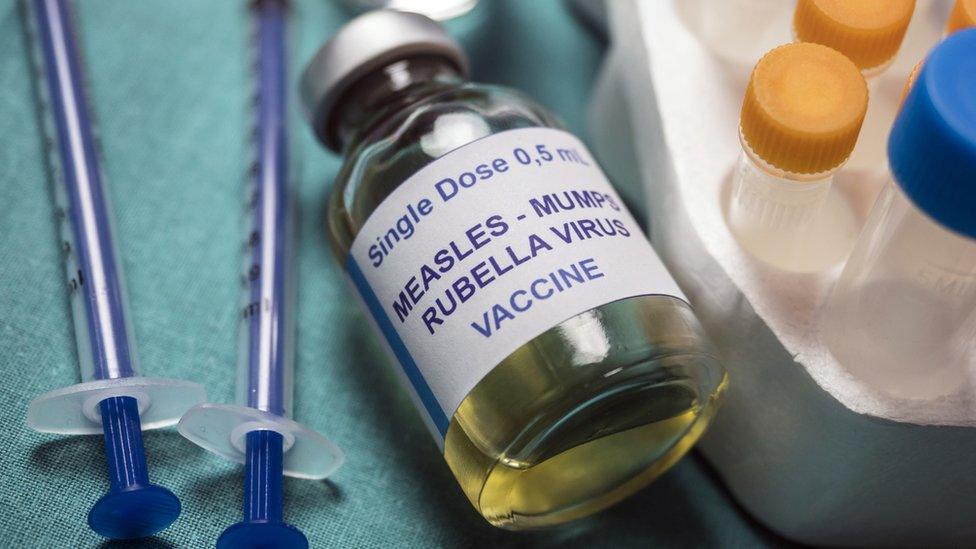Mumps and measles cases in England prompt vaccine call
- Published

Mumps leads to painful swellings under the ears
A significant increase in mumps cases and continuing outbreaks of measles in England have led to calls for people to ensure they are immunised.
Public Health England said even one person missing their vaccinations was "too many".
There were 795 cases of mumps in the first three months of 2019, compared with 1,031 in the whole of 2018.
Most mumps cases are linked to teenagers mixing when they go to university.
A large outbreak was centred on Nottingham Trent University and the University of Nottingham at the beginning of the year and similar increases in cases have been reported in Wales, external and Northern Ireland.
The disease is caused by a virus that infects and causes painful swellings in the parotid glands under the ears.
In rarer cases, it can lead to viral meningitis and swollen ovaries or testicles.
Mumps is one of the infections the MMR vaccine protects against or at least lessens the symptoms of.
However, many of the students now at university were born at the peak of the MMR-autism scare around the turn of the century, when vaccination rates dropped.
The autism link, made by disgraced doctor Andrew Wakefield, has since been completely disproved.
"If you're going to university, now's the time to catch up if you missed out as a child," said Mary Ramsay, the head of immunisation at Public Health England.

Public Health England has also reported outbreaks of measles in London, the North West and the East of England.
In the first quarter of 2019, there were 231 confirmed cases.
The World Health Organization says we are in the middle of a global measles crisis.
Cases in the UK are largely within communities with low-vaccination rates and are linked to travel to other countries with outbreaks.
Dr Ramsay added: "Measles can kill and it is incredibly easy to catch, especially if you are not vaccinated.
"Even one child missing their vaccine is one too many - if you are in any doubt about your child's vaccination status, ask your GP as it's never too late to get protected."
Helen Bedford, professor of child public health at UCL, said: "Measles is a highly infectious, potentially serious disease and England has not escaped the recent increase in cases we have seen globally.
"If you are unvaccinated or in doubt about whether you are protected, contact your GP practice."
Follow James on Twitter., external